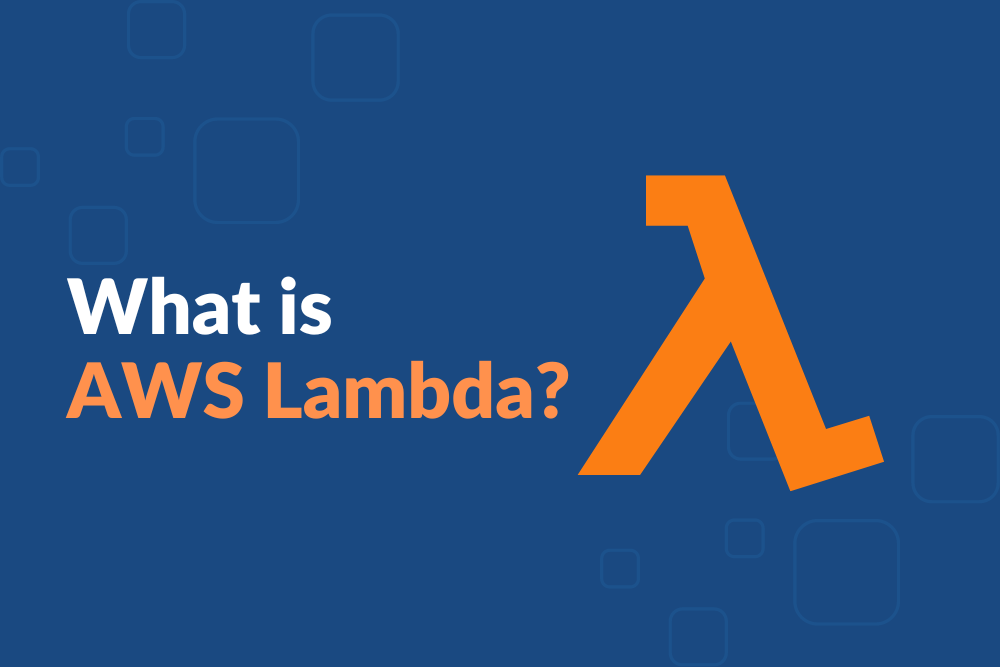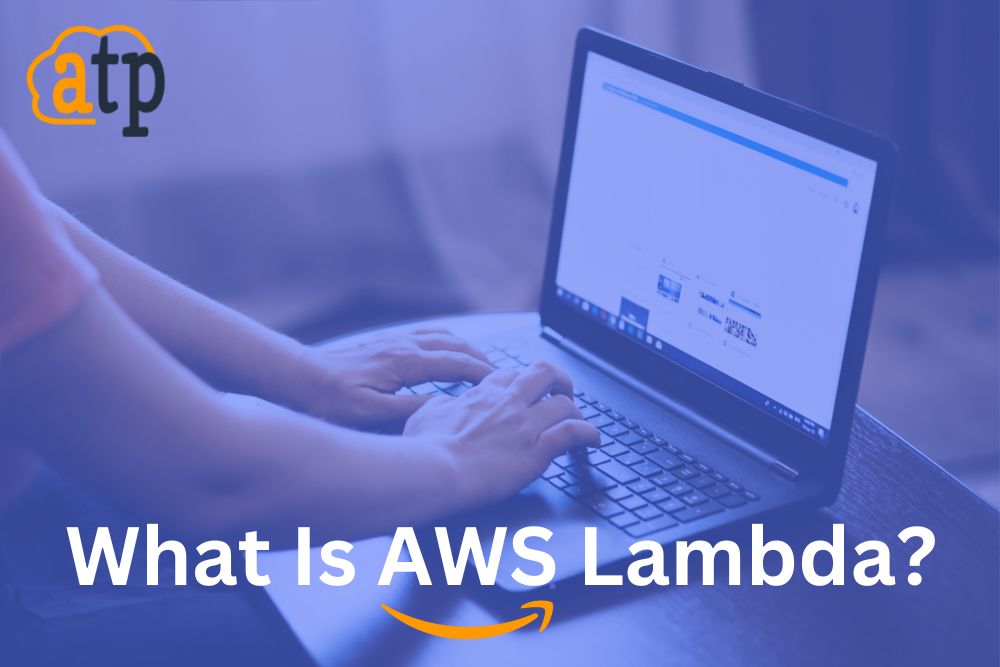AWS Lambda is a powerful and versatile platform that has revolutionized the way we build and deploy applications. In this blog post, we will dive deep into what AWS Lambda is and how it works. We will also explore its various use cases and the benefits it offers to businesses and developers alike. Whether you are new to AWS Lambda or looking to gain a better understanding of this platform, this blog post is a must-read. So, let’s get started!
What is AWS Lambda?

AWS Lambda is a cloud-based platform provided by Amazon Web Services (AWS) that enables developers to run their apps and services without having to manage the underlying infrastructure. The platform is designed to manage all aspects of application deployment, including capacity provisioning, auto-scaling, and monitoring, as well as security and compliance.
AWS Lambda has an event-driven architecture, which means that your code is only executed when an event occurs, such as a user uploading a file to an S3 bucket, making an API call, or updating a database. This technique offers several benefits, including lower costs, enhanced scalability, and greater flexibility.This approach offers several advantages, including lower costs, improved scalability, and greater flexibility.
One of AWS Lambda’s most significant advantages is its serverless computing method, which eliminates the need for server upkeep, scalability, or patching. Instead, the platform manages the underlying infrastructure for customers while focusing on the development of business applications and services.
Want to make a career in Cloud Computing? Check our AWS Training In Pune
What is an AWS Lambda Function?
AWS Lambda functions are indeed the foundation of a serverless application in the AWS environment. It is a piece of code that executes in reaction to an event trigger, such as a user uploading a file to an S3 bucket or making an API call. AWS handles everything, so users don’t have to worry about server upkeep, scalability, or bug fixes.
AWS Lambda functions are easy to create and deploy, and users just pay for the computing time they consume. As a consequence, AWS Lambda offers a cost-effective solution for conducting modest, infrequent activities. Furthermore, the platform’s auto-scaling capabilities ensure that your functions can handle increased traffic, so users don’t have to worry about their service being unavailable during peak periods.
What is Lambda Function in AWS?
Lambda Function in AWS enable users to run code in response to particular triggers. It may be regarded of as a compact, scalable, and highly available server that runs client programs and handles the underlying infrastructure automatically. It is a cost-effective method for operating applications and services since users only pay for the computing time they utilise.
The Lambda function enables customers to quickly and easily build and deploy serverless applications and services on AWS. The platform supports a number of programming languages, including Node.js, Python, Java, and C#, allowing you to utilise the language that best suits your needs. AWS also provides a variety of tools and services that make it simple to design, test, and deploy Lambda functions.
Interested to know how Cloud Computing works? Enroll now for AWS Cloud Practitioner Training
What is Amazon Lambda?
Amazon Lambda, often known as Amazon Lambda, is a cloud-based serverless computing technology provided by Amazon Web Services (AWS). It enables developers to run code in reaction to specified events and manages the underlying infrastructure automatically, allowing developers to focus on generating code and building applications rather than server maintenance.
AmazonLambda is a key component of AWS’ serverless computing offerings, which also include API Gateway and DynamoDB. With AmazonLambda, users only pay for the computing time they use, making it a cost-effective alternative for a wide range of applications and use cases.
One of the key benefits of AmazonLambda is its ability to scale dynamically in response to incoming traffic with minimal user involvement. This allows programmes to handle traffic spikes without incurring additional costs or slowing performance.
AmazonLambda supports a wide range of programming languages, including JavaScript (Node.js), Python, Java, Go, and others, in addition to scalability and cost-effectiveness. This enables developers to quickly link AmazonLambda to existing systems and workflows by leveraging familiar languages and technologies.
AmazonLambda provides a highly flexible and scalable solution that can adapt to changing business demands, whether the client wants to construct microservices, automate workflows, or perform scheduled operations.It is no surprise that AmazonLambda has become such a popular platform among developers and organizations across the globe, given its extensive set of capabilities and benefits.
Master the skills from Industry experts. Learn more at AWS With DevOps Certification Course
What is AWS Lambda Used For?
AWS Lambda is a highly versatile and flexible platform that can be used for a wide range of purposes. Some of the most common uses of AWS Lambda include:
Running backend code for web and mobile applications: AWS Lambda allows developers to run backend code for web and mobile applications, such as authentication and data processing, without the requirement for server management. As a result, it is a low-cost, scalable solution for a variety of applications.
Processing data in real-time: AWS Lambda may be used to process real-time data, such as Amazon Kinesis logs or IoT device streaming data. This allows businesses to handle and analyse massive amounts of data in real time, yielding valuable insights.
Building and deploying serverless applications: AWS Lambda is a key component of AWS’ serverless computing capabilities, allowing developers to quickly build and deploy serverless applications. With serverless computing, businesses only pay for the computing resources they consume, making it a cost-effective alternative for a wide range of applications.
Running Chatbots: AWS Lambda may be used to run Chatbots, allowing businesses to automate customer care and support, reduce response times, and improve customer experience.
Automating workflows and tasks: AWS Lambda may be used to automate workflows and tasks such as delivering notifications, updating databases, and processing files. Organizations may save time and increase efficiency by automating repetitive and time-consuming tasks.
Processing files and data from Amazon S3 or other cloud storage services: AWS Lambda can process files and data from Amazon S3 as well as other cloud storage providers such as Google Cloud Storage and Microsoft Azure. This allows businesses to process massive amounts of data without having to manage servers or storage.
AWS Lambda’s serverless computing approach and event-driven design make it an excellent solution for handling smaller, variable workloads. It is especially well-suited for real-time data processing and chatbots, which require rapid scalability and automatic failover.
Furthermore, the platform’s support for a range of programming languages, as well as its integration with other AWS services, make it an enticing alternative for developing sophisticated, multi-tier applications.
AWS Lambda is also commonly utilised in the building of microservices and serverless applications. Microservices are tiny, self-contained components of a software that work together to achieve a specific purpose. Developers may utilise AWS Lambda to quickly and efficiently build and deploy these components without having to deal with the underlying infrastructure.
AWS Lambda can also be used to perform scheduled operations like sending out daily emails or performing backups. The event-driven nature of the platform, as well as its autonomous scaling capabilities, make it an ideal solution for executing a range of workloads. To learn more visit AWS Training in Pune
What is a Lambda Function AWS?
A Lambda function in AWS let users run code in response to specific events. It is a small, scalable, and highly available computer that runs client code and automatically manages the underlying infrastructure. Users may quickly and simply design and deploy serverless apps and services using AWS Lambda, while only paying for the computing time they utilise.
AWS Lambda supports a wide range of programming languages, including Node.js, Python, Java, and C#, allowing clients to select the language that best suits their needs. The platform also includes a number of tools and services for designing, testing, and deploying Lambda functions.
Conclusion
In conclusion, Amazon Web Service Lambda has proven to be a game-changer in the world of cloud computing and serverless architecture. Its ability to run code in response to specific events, combined with its automatic infrastructure management, makes it a highly scalable and flexible platform for businesses and developers alike.
With its vast programming language support and comprehensive collection of tools and services, Amazon Web Service Lambda delivers a level of versatility that makes it simple to create and deploy applications of all shapes and sizes.
AWS Lambda provides a dependable and cost-effective solution for automating workflows, developing microservices, and conducting scheduled tasks. It is also a robust and versatile platform that uses serverless computing and an event-driven design. It is perfect for running light, infrequent workloads, building microservices and serverless applications, and automating workflows and operations.
In this blog post, we have covered the basics of what Amazon Web Service Lambda is and how it works, as well as explored its various use cases and benefits. By understanding the full capabilities of Amazon Web Service Lambda, you can take advantage of this platform to build and deploy applications more efficiently and cost-effectively.
In the fast-paced and ever-evolving world of technology, it is crucial to stay ahead of the curve and embrace innovative solutions like AWS Lambda. So, if you are ready to take your application development to the next level, give AWS Lambda a try today. Learn more with AWS Training in Pune




